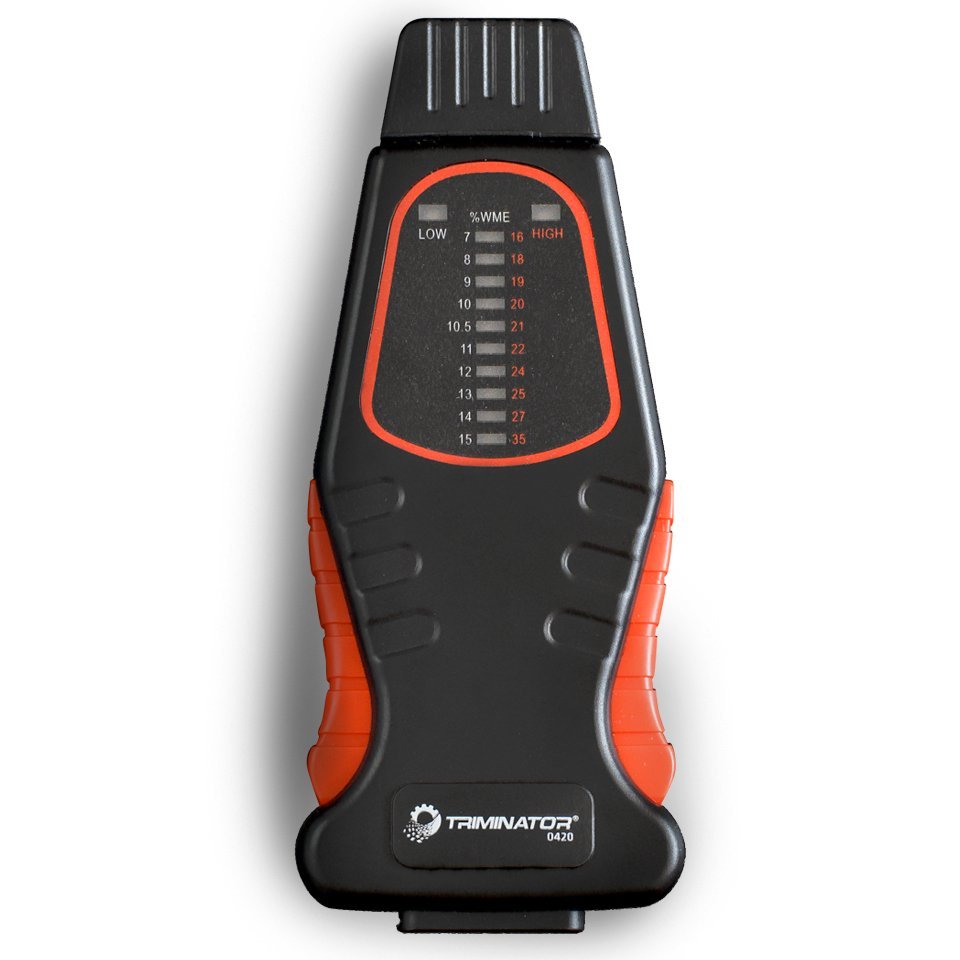The Ultimate Guide to Moisture Meters: A Comprehensive Review and Exactly How They Can Save You Cash
In the world of building upkeep, building and construction, and numerous industries, the importance of properly determining wetness degrees can not be overstated. Moisture meters function as crucial devices in identifying and checking moisture material in materials, aiding in avoiding pricey damages and making certain the quality of products. Comprehending the subtleties of various types of wetness meters, their applications, and the possible cost-saving advantages they offer can be a game-changer for organizations and professionals alike. Uncovering how these gadgets can not only enhance processes however also contribute to economic savings is a journey worth getting started on.
Types of Dampness Meters
One common type is the pin-type moisture meter, which measures the electric resistance in between 2 pins put into a product. Pinless dampness meters, on the various other hand, use electromagnetic sensor plates to scan a larger area without causing damage to the material's surface area.

Infrared wetness meters gauge the thermal residential properties of a material to identify its wetness content non-invasively, making them beneficial for applications where pin or pinless meters might not be suitable. Recognizing the different types of wetness meters readily available can help markets pick the most appropriate tool for their particular wetness measurement demands.

Advantages of Utilizing Moisture Meters
Moisture meters offer vital benefits in accurately keeping an eye on and evaluating moisture levels in varied products and atmospheres. One of the primary benefits of making use of wetness meters is the prevention of potential damages triggered by excess wetness.
Moreover, using dampness meters can lead to enhanced power effectiveness. In farming setups, moisture meters play an essential duty in enhancing crop returns by allowing farmers to keep an eye on soil dampness degrees and make notified irrigation choices.
How to Select the Right Moisture Meter
Choosing the ideal moisture meter involves thinking about vital elements such as material compatibility, measurement range, and calibration precision. When choosing a wetness meter, it's vital to guarantee that the meter is ideal for the specific material you will be testing. Various products have differing electric residential properties that can influence moisture readings, so choosing a meter created for your product is critical for accurate results. Furthermore, take into consideration the dimension series of the moisture meter. Make sure that the meter can detect wetness degrees within the range required for your applications. Calibration precision is another important factor to bear in mind. Go with a wetness meter with trustworthy calibration to make sure consistent and accurate readings. Some meters might require periodic calibration modifications, so comprehending the calibration procedure is essential. By meticulously evaluating these elements, you can select a wetness meter that fulfills your demands and gives exact dampness dimensions for your projects.
Appropriate Strategies for Moisture Meter Use

Cost Financial Savings Via Dampness Meter Applications
How can the calculated use of wetness meters result in considerable basics expense financial savings throughout different markets? Wetness meters play a critical duty in price financial savings by preventing potential damage and making sure top quality control in various fields. In the agriculture sector, dampness meters help in determining the optimum time for harvesting crops, avoiding over-drying or excess wetness that can affect the final item's quality. This accurate monitoring helps farmers stay clear of unnecessary losses and optimize their yield.
In a similar way, in building, dampness meters help stop costly problems by discovering dampness levels in structure products, such as wood or concrete, which can cause structural problems otherwise dealt with without delay. By identifying issue locations at an early stage, professionals can take rehabilitative steps to avoid substantial repairs or replacements, ultimately saving money and time.
Moreover, in the food processing market, dampness meters are essential for keeping an eye on product high quality and making certain compliance with security laws. By accurately determining moisture material in foodstuff, manufacturers can stop wasting, preserve quality, and reduce waste, leading to substantial expense savings. Generally, the critical application of moisture meters is an important financial investment that can bring about substantial expense decreases and improved effectiveness throughout numerous markets.
Final Thought
In verdict, wetness meters are beneficial tools for gauging and finding moisture levels in numerous materials. By utilizing the right dampness meter and following correct techniques, customers can successfully prevent expensive problems triggered by excess dampness.
Wetness meters offer as important devices in finding and keeping track go of moisture web content in materials, helping in preventing expensive damages and guaranteeing the top quality of products. Infrared dampness meters measure the thermal buildings of a material to identify its dampness material non-invasively, making them useful for applications where pin or pinless meters may not be ideal.Wetness meters use invaluable benefits in precisely keeping an eye on and evaluating dampness levels in varied products and environments. In farming setups, moisture meters play a crucial role in maximizing crop yields by making it possible for farmers to check soil wetness degrees and make educated irrigation choices.In final thought, dampness meters are important devices for gauging and identifying wetness levels in different products.
Comments on “How a Moisture Meter Can Help You Maintain Optimal Problems in your house or Workplace”